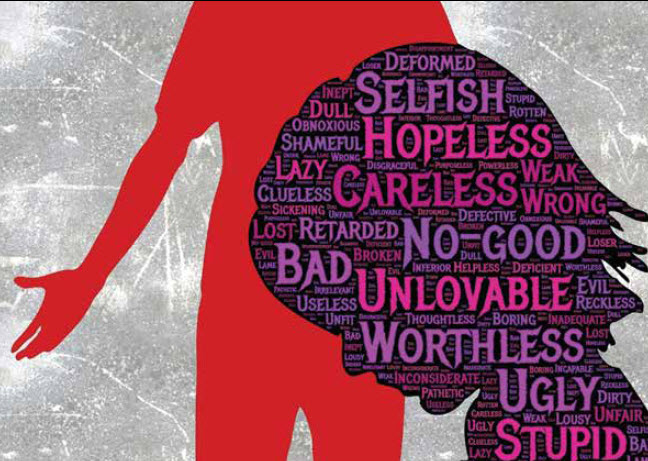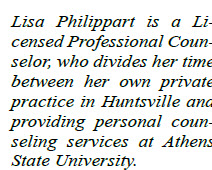 By: Lisa Philippart
By: Lisa Philippart
In my last article, I shared information with you about the troubling “technique” of gaslighting. If you recall, I explained that gaslighting occurs when the abuser attempts to convince the victim that he or she is “crazy.” The gaslighter establishes a pattern of undermining behavior so that the victim questions his or her perception of reality. Their manipulation works because they often appear friendly, loving, and concerned. As a victim, it’s hard to believe that someone who cares for you would purposefully and over time try to hurt you. As talented and experienced manipulators, gaslighters often use language to twist any problem into being your fault, or accuse you of being too sensitive. Their words are usually accompanied by non-verbal flippant behaviors, such as rolling of the eyes, sighing, or looking in disbelief, implying you are irrational or uninformed. It is the intermittent expressions of caring that can throw you into confusion. Gaslighters present with a persistent pattern of behavior, so damaging, gradual, and deceptive that you don’t even realize what is happening. And then you arrive at a crisis or breaking point. Make no mistake, gaslighting is not about love or concern. It’s about power, control, manipulation, and superiority.


So let’s take a look at how you can snuff out that gaslighter in your life. As we say in the counseling world, awareness is the first step. Take a step back from what has been going on and really look at whether there is a pattern of undermining behavior. In my opinion, gaslighting is only effective when you haven’t clued in to what is going on. Once you start noticing the pattern, it will not be able to affect you as much. For example, you may begin to tell yourself, “Here we go again, “and wave it off. If you can keep in mind that the gaslighting isn’t about you, it’s about the need for control and power, you will be able to see the gaslighter as insecure and weak. Almost all gaslighters believe they have to have the upper hand. They have few other coping skills or ways to mediate conflict or differences. This absolutely does not excuse the behavior, but knowing this may help you to take the manipulation less personally. It is also at this point when you can recognize that you will need to decide whether to maintain this relationship. The most important statement in this article is: Be aware that it is highly unlikely that you will be able to change the gaslighter. The gaslighter has usually spent a lifetime honing the skills necessary to manage the world and the people in it. The controlling behaviors being used are all they know, and as far as they know, they’re working for them.

The time may come when you need to rethink the worth of the relationship. Can you continue to put up with the constant attempts to chip away at your self-esteem? If the gaslighter is a boss or supervisor, you may want to start looking for another job. If the gaslighter is a friend, family member, or co-worker, you might need to consider putting some distance between you. If the gaslighter is your partner or significant other, and you have decided to preserve the relationship, you probably need to commit to couples counseling. You will unquestionably require a support system. You need other people in your life to confirm your worth and your reality. Gaslighters love to isolate their victims in order to stay in control. They even go as far as to repeatedly tell their victims that they (the gaslighter) are the only person who really loves and understands them. Please, if you are in this type of situation, don’t believe their lines/lies. Spend time with friends and family, and verify your perceptions by talking to them, especially if they have witnessed what the gaslighter is calling into question.
It is so important to work on rebuilding your self-esteem. You are a loveable and capable person no matter what the gaslighter tells you. There are numerous self-help books that can guide you to love yourself and affirm your self-worth. You can regain your perspective by reminding yourself of the times in your life when you felt grounded and good about yourself. You might even want to keep a private journal to document events that the gaslighter may call into question. You may decide that you need professional help. Those who have been “beat up” for many years lose confidence in their own thoughts and emotions; double-checking their realities. This leads to depressive feelings of helplessness and hopelessness. A mental health counselor can help you to dig your way back out of the effects of gaslighting. You can recover.
By: Lisa Philippart
Licensed Professional Counslor


